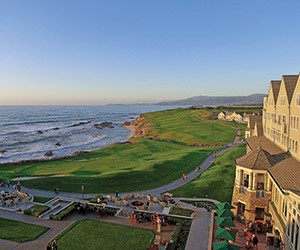While perception issues aren’t dogging the luxury hotel sector as they once did, meeting planners may still feel challenged to convince decision-makers that it’s worth the cost of springing for an upscale property. Is the elevated level of service, amenities and ambience really going to deliver a return on investment that can’t be equaled by a hotel in a lesser category?
Depending on the type of meeting, the answer might well be yes. Luxury hoteliers insist that the type of environment they provide, along with attention to detail and a sense of place, are not just frills, but essential ingredients that help achieve objectives such as motivation, creativity and focus.
While organizations remain value-conscious, many are recognizing that upscale or luxury hotels can provide good value for meetings, according to Bjorn Hanson, a hotel industry consultant and professor at the Preston Robert Tisch Center for Hospitality and Tourism at New York University.
“There’s realization that the service level really does contribute to the productivity of a meeting and helps people focus,” he says. “Even an amenity like a hotel spa, which may sound frivolous, is beneficial for the attendee who’s come in from a long flight.”
Kelly Wood, vice president, global sales organization for The Ritz-Carlton Hotel Co., says that everything from the quality of food served at breaks to function room design contributes to a more-effective meeting.
“If you set the right tone with the attendee, it impacts the way they receive the message being delivered,” she says. “We believe that the meeting room environment feeds into the experience—the lighting, the soft goods, the colors and the way the room is set.”
Another priority at Ritz-Carlton is to provide food and beverage service that ties into meeting productivity, she adds.
“Our chefs and conference services team will sit down with you and craft a menu that fits your audience, including foods at breaks that promote energy,” she says. “Details like these serve a purpose.”
Have It Your Way
What is it that most differentiates a luxury hotel from those in lower categories? According to Bill Dougherty, general manager of the Glen Cove Mansion Hotel & Conference Center in Glen Cove, N.Y., which specializes in executive meetings, it’s all about a willingness to customize the experience for each group.
“Lesser hotels can do the heavy lifting, but they are contained in a certain box,” Dougherty says. “At the luxury level, it’s about thinking outside the box to say ‘yes’ to certain demands. At Glen Cove, we’ve done everything from providing teambuilding for a high-level military group to having a special brand of scotch flown in for the president of Citibank.”
At the same time, Dougherty—a veteran hotelier who has been with a range of properties in various price categories—says expectations are rising among executive-level attendees to the point where impeccable service may be a necessity, not a luxury.
PageBreak
“The higher the level of the meeting, the more the attendees will be aware of the trends going on, what the top restaurants are serving,” he says. “If you don’t meet their expectations, there will be a negative impact.”
Sense of Place
Another way that luxury hoteliers say their properties deliver value is in the way they give attendees a sense of place and help facilitate experiences that are unique to the destination.
“Three- and four-star hotels, especially those with the big chains, tend to be cookie-cutter, but luxury hotels are often in historic buildings that really reflect where they are, whether it’s in the style of the room or the quality of the cuisine,” says Greg Schwab, president of Elite International Luxury Hotel Representation, a marketing organization for high-end properties in North America and Europe.
“Five-star properties also tend to have concierge services and insider connections that can provide truly memorable experiences,” he adds. “They can open the doors to a destination.”
At Ritz-Carlton, finding imaginative ways to engage attendees with the locality is a priority, according to Wood.
“For instance, at our hotel in Naples, [Fla.], where there are beautiful sunsets, a bell on the beach is rung at the moment the sun drops into the ocean,” she says. “At The Ritz-Carlton, Half Moon Bay the nearby wine country is an integral part of the hotel, including a wine tasting when you check in.”
Optimal Value
With availability and rates at a premium at luxury hotels these days (see sidebar), what are some strategies planners can use to keep costs in line? Hoteliers say flexibility may be more important than ever.
“Our message to planners is that you have to book further out,” Wood says, adding that Ritz-Carlton properties, especially those in North America, are anticipating that demand will remain strong over the next few years.
“It also can make a big difference to be flexible on dates—sometimes even shifting the arrival by a day can make a big difference,” she says. “Or consider an alternative location—if a coast resort is full, perhaps a mountain or desert location might have more availability.”
Robert Mandelbaum, director of research information services for PKF Hospitality Research, agrees.
“While there’s a lot of competition now for space, all hotels have their dead spots and they are eager to fill them,” he says. “So look at your calendar. Timing and geography are big factors.”
Schwab, whose company represents luxury hotels in both North America and Europe, says it’s the North American properties that are faring the best in the current market. While airfares need to be calculated into the equation, planners may find more affordability in Europe.
“Other than during the busy summer season, hotels and resorts in Europe are now facing challenges in filling their rooms,” he says. “The economy in Europe is not doing so well, so we’re seeing some hotels drop their rates almost by half.”
Maria Lenhart is a longtime valued contributor to Meetings Focus.







